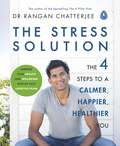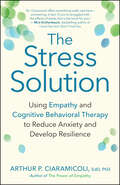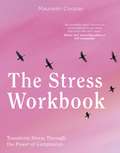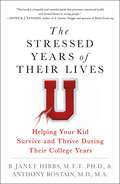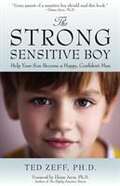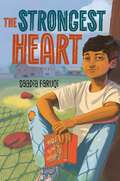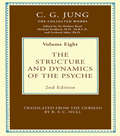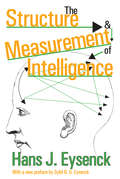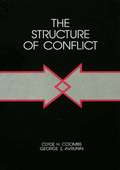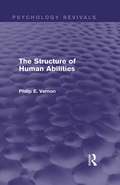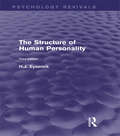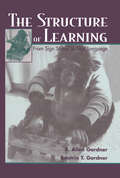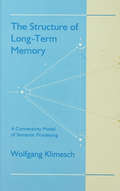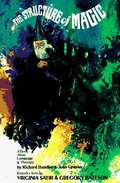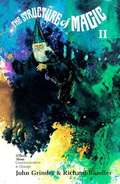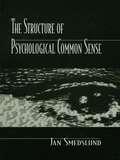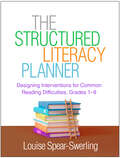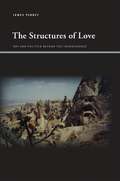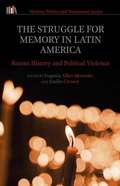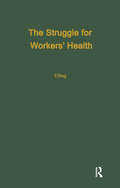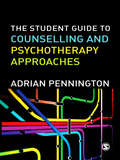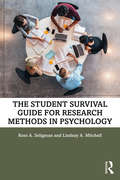- Table View
- List View
The Stress Solution: The 4 Steps to a Calmer, Happier, Healthier You
by Dr Rangan ChatterjeeFROM THE SUNDAY TIMES BESTSELLING AUTHOR OF HAPPY MIND, HAPPY LIFE 'One of the most influential doctors in the UK (...) I could talk to Rangan all day (...) he's amazing'- Chris EvansBecome a calmer, happier and healthier you with Dr Rangan Chatterjee's The Stress Solution. In this book, Dr Rangan Chatterjee, draws on two decades of practice to show you how to make easy-to-follow and sustainable health and lifestyle improvements to your everyday life. Top tips include:· How to breathe to feel happier· How to schedule in "me time"· How to become less addicted to your phone· How to find and ignite your passionAt no extra cost, learn how to slow down and feel calmer and more in control of your life by investing in your long-term health.'Small changes make a big difference - we can all benefit from reading this' - Jamie Oliver
The Stress Solution: Using Empathy and Cognitive Behavioral Therapy to Reduce Anxiety and Develop Resilience
by Arthur P. Ciaramicoli, EdD, PhDTherapeutic tools for fighting the anxiety, fear, and depression caused by stress “We work too much, sleep too little, love with half a heart, and wonder why we are unhappy and unhealthy,” writes clinical psychologist Arthur Ciaramicoli. In The Stress Solution, Ciaramicoli provides readers with simple, realistic, powerful techniques for using empathy and cognitive behavioral therapy to perceive situations accurately, correct distorted thinking, and trigger our own neurochemistry to produce calm, focused energy. He developed this approach over thirty-five years of working with clients struggling with depression, anxiety, and addictions. Over and over again, he has helped sufferers overcome old hurts and combat performance anxiety, fears, and excessive worry. Ciaramicoli’s pioneering approach offers new promise to readers facing a variety of stress-based concerns.
The Stress Workbook: Transform Stress Through the Power of Compassion
by Maureen CooperStress is an unavoidable part of life that we will all encounter at various times, be it due to a one-off event such as losing a job or the break-up of a relationship, or from facing long-term difficulties such as working in a stressful environment or caring for someone who is ill. How well we deal with stress will influence the extent to which it affects our lives.Maureen Cooper explains why humans are designed to respond to stress in a certain way and why this can even be helpful at times. She goes on to show how to transform our habitual way of responding to stress by training ourselves in compassion and thereby improving our sense of control and wellbeing.In this workbook, you can learn to manage stress better:· Using tried and tested compassion techniques· Via case studies and practical exercises
The Stress Workbook: Transform Stress Through the Power of Compassion
by Maureen CooperStress is an unavoidable part of life that we will all encounter at various times, be it due to a one-off event such as losing a job or the break-up of a relationship, or from facing long-term difficulties such as working in a stressful environment or caring for someone who is ill. How well we deal with stress will influence the extent to which it affects our lives.Maureen Cooper explains why humans are designed to respond to stress in a certain way and why this can even be helpful at times. She goes on to show how to transform our habitual way of responding to stress by training ourselves in compassion and thereby improving our sense of control and wellbeing.In this workbook, you can learn to manage stress better:· Using tried and tested compassion techniques· Via case studies and practical exercises
The Stressed Years of Their Lives: Helping Your Kid Survive and Thrive During Their College Years
by Dr. B. Janet Hibbs Dr. Anthony RostainFrom two leading child and adolescent mental health experts comes a guide for the parents of every college and college-bound student who want to know what’s normal mental health and behavior, what’s not, and how to intervene before it’s too late. “The title says it all...Chock full of practical tools, resources and the wisdom that comes with years of experience, The Stressed Years of their Lives is destined to become a well-thumbed handbook to help families cope with this modern age of anxiety.”— Brigid Schulte, Pulitzer Prize-winning journalist, author of Overwhelmed and director of the Better Life Lab at New AmericaAll parenting is in preparation for letting go. However, the paradox of parenting is that the more we learn about late adolescent development and risk, the more frightened we become for our children, and the more we want to stay involved in their lives. This becomes particularly necessary, and also particularly challenging, in mid- to late adolescence, the years just before and after students head off to college. These years coincide with the emergence of many mood disorders and other mental health issues.When family psychologist Dr. B. Janet Hibbs's own son came home from college mired in a dangerous depressive spiral, she turned to Dr. Anthony Rostain. Dr. Rostain has a secret superpower: he understands the arcane rules governing privacy and parental involvement in students’ mental health care on college campuses, the same rules that sometimes hold parents back from getting good care for their kids. Now, these two doctors have combined their expertise to corral the crucial emotional skills and lessons that every parent and student can learn for a successful launch from home to college.
The Strong, Sensitive Boy
by Ted ZeffYour son may be one of the 20 percent of all boys with a finely tuned nervous system. Our sensitive boys tend to be creative, kind, and gentle, appreciating beauty and feeling love deeply. Therefore, it's particularly challenging for sensitive boys to grow up in a culture where boys are taught to act tough, aggressive, and unemotional.
The Strongest Heart
by Saadia FaruqiFrom beloved middle grade author Saadia Faruqi comes a poignant exploration of the impact of mental illness on families—and the love and hope that it takes to begin telling a different tale. Mo is used to his father’s fits of rage. When Abbu's moods shake the house, Mo is safe inside his head, with his cherished folktales: The best way to respond is not to engage. Apparently, his mama knows that too—which is why she took a job on the other side of the world, leaving Mo alone with Abbu.With Mama gone, the two move to Texas to live with Mo’s aunt and cousin, Rayyan. The two boys could not be more different. Rayyan is achievement-driven and factual; Mo is a “bad kid." Still, there is a lot to like about living in Texas. Sundays at the mosque are better than he’d expected. And Rayyan and his aunt become a real family to Mo.But even in a warm home and school where he begins to see a future for himself, Mo knows that the monster within his father can break out and destroy their fragile peace at any moment…
The Structural Design of Language
by Thomas S. Stroik Michael T. PutnamAlthough there have been numerous investigations of biolinguistics within the Minimalist Program over the last ten years, many of which appeal to the importance of Turing's Thesis (that the structural design of systems must obey physical and mathematical laws), these studies have by and large ignored the question of the structural design of language. They have paid significant attention to identifying the components of language - settling on a lexicon, a computational system, a sensorimotor performance system and a conceptual-intentional performance system; however, they have not examined how these components must be inter-structured to meet thresholds of simplicity, generality, naturalness and beauty, as well as of biological and conceptual necessity. In this book, Stroik and Putnam take on Turing's challenge. They argue that the narrow syntax - the lexicon, the Numeration, and the computational system - must reside, for reasons of conceptual necessity, within the performance systems. As simple as this novel design is, it provides, as Stroik and Putnam demonstrate, radical new insights into what the human language faculty is, how language emerged in the species, and how language is acquired by children.
The Structure and Dynamics of the Psyche: Structure And Dynamics Of The Psyche (Collected Works of C. G. Jung #47)
by C. G. JungThe Structure and Dynamics of the Psyche first appeared in the Collected Works in 1960. In this new edition bibliographical citations and entries have been revised in the light of subsequent publications in the Collected Works, and essential corrections have been made. The book traces an important line of development in Jung's thought from 1912 onwards. The earliest of the papers elaborates Freud's concept of sexual libido into that of psychic energy. In those that follow we see how, Jung, discarding one by one the traditional 'philosophical' hypotheses, gradually arrived at a concept which is even more controversial than psychic energy was in its day ^DDL namely, psychic reality. The book contains the first mention of the archetype in Jung's writings as well as his later views on its nature. There is also a valuable account of the therapeutic uses of 'active imagination' first described in an essay written in 1916.
The Structure and Measurement of Intelligence
by Hans EysenckWhat is meant by the term "intelligence" and, once de- fined, how do we go about achieving a valid measurement of this faculty? This classic textbook, originally published in 1979, and now reissued with a new preface by Sybil Eysenck, incorporates a broad range of findings and reanalyzes much of the existing literature in this area. In The Structure and Measurement of Intelligence, Hans Eysenck draws on methods for determining the effect of genetics and environment on the development of intelligence and examines the validity of the term as defined in relation to internal as well as external criteria. He tests a number of hypotheses on intelligence against empirical research findings and considers various criticisms in detail. The significance of intelligence and its measurement in society are explored in depth. Eysenck greatly expands upon such questions as: Does IQ measure intelligence? How valid is the nature versus nurture argument? and, How might socioeconomic status influence one's intelligence? Designed primarily for students and scholars in psychology and education, this text will make thought-provoking reading for all concerned with the development and measurement of intelligence in the individual.
The Structure of Conflict
by Clyde H. Coombs George S. AvruninA theory that attempts to bring order to the chaotic variety of conflict usually begins by distinguishing types of conflict and formulating general explanatory principles that relate and integrate them. In contrast to traditional methods, this book describes and explores the structural aspects of different types of conflicts, and discusses the important implications involved for both choosing and achieving methods for resolving conflict. Two important facets of conflict structure are recognized: the individuals involved and the behavioral principles that govern them; and the existence of options and their structural relation. This monograph will be of interest to researchers and practitioners of conflict resolution, such as mediators, lawyers, diplomats, counselors and psychologists, and students in experimental and social psychology, labor relations, poilitical science and law.
The Structure of Human Abilities (Psychology Revivals)
by Philip E. VernonFirst published in 1950, this revised edition of The Structure of Human Abilities was published in 1961, but remained largely unchanged from the original save for an additional supplement on the developments in factorial work on human abilities from 1950-1959. Much research had been carried out during the years leading up to publication, in England and America, into mental abilities; and modern methods of statistical treatment, especially factor analysis, had been increasingly used. It was felt that the mass of diverse material was apt to confuse the student of psychology of the time, especially as the results of such research were often apparently conflicting. Professor Vernon, one of the leading experts in this branch of psychology, sifted the material and attempted to provide a consistent picture of our mental structure.
The Structure of Human Personality (Psychology Revivals)
by H.J. EysenckOriginally published in 1953, this third edition was first published in 1970. It was one of the early attempts at bringing together theories of personality organisation and finding empirical evidence to test their hypotheses. This third edition includes additional chapters and updated references to current research of the time. It is a particular feature of this book that a large number of figures are reproduced in the text; this is essentially a consequence of the writer’s belief that diagrammatic representations are better suited to the transmitting and remembering of information than are words or numbers. The first chapter outlines the theories and discusses some of their implications, the second and third look at methods of analysis and projective techniques, while the rest of the book is devoted to a critical presentation of the evidence, arranged according to the technique employed – rating, self-rating, objective testing, constitutional assessment, autonomic measurement, and so on. Today it can be read and enjoyed in its historical context.
The Structure of Learning: From Sign Stimuli To Sign Language
by R. Allen Gardner Beatrix GardnerDrawing together research and theory in ethology and psychology, this book offers a clear and provocative account of the ways in which living organisms learn. Throughout, the authors' focus is on the importance of operational definition. In lively prose, describing experiments in enough depth to involve readers in the drama of experimental method, they recount the history of scientists' attempts to answer basic questions, and show how one study builds on another. Although they present the major traditional positions, they demand that readers examine actual evidence, recognize weaknesses, and consider alternatives. This critical process leads to the delineation of a bottom up, feed forward model in contrast to the traditional top down, feed backward one. Recent research in robotics and fuzzy logic suggests ways in which artificial as well as living systems pursue bottom up, feed forward ethological solutions to practical problems. The authors' extended discussion of their exciting work teaching sign language to chimpanzees vividly illustrates the application of the basic principles of learning elucidated in the book.
The Structure of Long-term Memory: A Connectivity Model of Semantic Processing
by Wolfgang KlimeschHow is information stored and retrieved from long-term memory? It is argued that any systematic attempt to answer this question should be based on a particular set of specific representational assumptions that have led to the development of a new memory theory -- the connectivity model. One of the crucial predictions of this model is that, in sharp contrast to traditional theories, the speed of processing information increases as the amount and complexity of integrated knowledge increases. In this volume, the predictions of the model are examined by analyzing the results of a variety of different experiments and by studying the outcome of the simulation program CONN1, which illustrates the representation of complex semantic structures. In the final chapter, the representational assumptions of the connectivity model are evaluated on the basis of neuroanatomical and physiological evidence -- suggesting that neuroscience provides valuable knowledge which should guide the development of memory theories.
The Structure of Magic (Volume #1)
by Richard Bandler John GrinderThese seminal works in neurolinguistic programming (NLP) help therapists understand how people create inner models of the world to represent their experience and guide their behavior. Volume I describes the Meta Model, a framework for comprehending the structure of language; Volume II applies NLP theory to nonverbal communication.
The Structure of Magic II
by Richard Bandler John GrinderThese seminal works in neurolinguistic programming (NLP) help therapists understand how people create inner models of the world to represent their experience and guide their behavior. Volume I describes the Meta Model, a framework for comprehending the structure of language; Volume II applies NLP theory to nonverbal communication.
The Structure of Psychological Common Sense
by Jan SmedslundPsychologic is a formal system and relationship within which psychological processes are defined. The language people ordinarily use to formulate, think, and talk about psychological phenomena is organized by Jan Smedslund into a set of propositions aimed at identifying the generalities which underlie human behavior. In this way, psychologic illuminates the conceptual system of psychology embedded in ordinary language. This book continues Professor Smedslund's search for stable theoretical structures to explain the meanings that are part of all psychological investigation.
The Structure of Spoken Language
by Philippe MartinUsing an innovative approach, this book focuses on a widely debated area of phonetics and phonology: intonation, and specifically its relation to metrics, its interface with syntax, and whether it can be attributed more to phonetics or phonology, or equally to both. Drawing on data from six Romance languages (French, Italian, Spanish, Portuguese, Catalan and Romanian), whose rich intonation patterns have long been of interest to linguists, J-Philippe Martin challenges the assumptions of traditional phonological approaches, and re-evaluates the data in favour of a new usage-based model of intonation. He proposes a unified description of the sentence prosodic structure, focusing on the dynamic and cognitive aspects of both production and perception of intonation in speech, leading to a unified grammar of Romance languages' sentence intonation. This book will be welcomed by researchers and advanced students in phonetics and phonology.
The Structured Literacy Planner: Designing Interventions for Common Reading Difficulties, Grades 1-9
by Louise Spear-SwerlingStructured Literacy (SL) approaches are increasingly recognized as the gold standard for teaching struggling readers. This highly practical book walks educators through designing SL interventions for students with common types of reading difficulties--word reading, comprehension, or a combination of both. Louise Spear-Swerling offers tools for assessing students' reading profiles and tailoring SL to their needs. In a convenient large-size format, the volume is packed with case studies, sample lesson plans addressing both early and advanced stages of reading, instructional activities, and application exercises for teachers. A chapter on English language structure presents essential foundations for implementing SL effectively. The companion website features a knowledge survey about language structure (with answer key), as well as downloadable copies of the book's 14 reproducible forms. See also Louise Spear-Swerling's edited volume, Structured Literacy Interventions: Teaching Students with Reading Difficulties, Grades K–6, which surveys SL interventions across all components of literacy.
The Structures of Love: Art and Politics beyond the Transference (SUNY series, Insinuations: Philosophy, Psychoanalysis, Literature)
by James PenneyBoth Freud and Lacan defined the transference as the ego's last stand—its final desperate attempt to keep the truth of the unconscious at bay. Both also viewed the transference as a social phenomenon.In The Structures of Love James Penney argues that transference is the concept with which psychoanalysis thinks through the unconscious demands that circumscribe and can sabotage our creative initiatives in the arts and politics. Penney suggests a method of cultural analysis that enables us to identity the transformative potential of genuine artistic and political acts. He stages a dialogue between Lacan's psychoanalysis and the philosophy of Alain Badiou; includes chapters on Frantz Fanon and Jean Genet, Chantal Akerman and Lucien Freud; and explores the aesthetic, political, and ethical consequences of the transference idea, pushing it into exciting new territory.
The Struggle for Memory in Latin America
by Eugenia Allier-Montaño Emilio CrenzelThis multi-disciplinary volume analyzes struggles over the memory of past political violence in Argentina, Brazil, Chile, Colombia, the United States, Guatemala, El Salvador, Mexico, Paraguay, Peru, and Uruguay. Each chapter offers a comprehensive history of the political violence that occurred in the second half of the twentieth century, analyzing its links with 1) the international context of the cold war, 2) the particular forms of repression and authoritarianism that prevailed in the domestic setting, 3) the social inequalities that were reinforced, and 4) the political, economic, and cultural transformations that Latin American societies were undergoing at the time. Considering the different paths that Latin American countries have taken in their efforts to confront history, the chapters examine how relevant actors look back on past events and vie with one another to give these events meaning in the public sphere. For each country examined, contributors consider the initiatives of transnational, regional, and national actors, as well as factors including class, gender, ethnicity, and geographic location. Chapters give political- and social-historical perspectives and employ tools from a variety of disciplines, including memory studies, history, political science, sociology, and anthropology.
The Struggle for Workers' Health
by Ray H. EllingTo better understand how strong worker protection systems differ from weak ones, this volume reports and interprets a study carried out in six nations-Sweden, Finland, The German Democratic Republic, The Federal Republic of Germany, The United Kingdom of Great Britain and Northern Ireland, and the United States of America. The work involved interviews with reputational leaders of different interest groups as well as observations, extensive document study and correspondence with key informants.
The Student Guide to Counselling & Psychotherapy Approaches
by Adrian PenningtonThis pocket guide to modality approaches in counselling & psychotherapy is a one-stop-shop for trainees on introductory counselling courses. It describes 12 models of therapy, as well as introducing the origins of counselling and providing guidance and tips on practical issues like time-keeping, supervision, endings and boundaries. Each short approach-specific chapter has a consistent structure which allows easy comparison and cross-referencing between the modalities. The chapters cover - origins & background - big names & big ideas - how the approach works & who it′s for - critical considerations - identifying features - reflection & summary - learning ideas & suggested reading This book is essential reading when choosing a professional counselling training in which to specialise, or if you just want an overview of other counselling modalities outside of your own. Those trained or training in wider metal health and psychology will also find it an useful overview of counselling approaches. Adrian Pennington is a Counselling Psychologist, Performance Psychologist, Clinical Supervisor, Trainer in Counselling and Mediator.
The Student Survival Guide for Research Methods in Psychology
by Ross A. Seligman Lindsay A. MitchellThe Student Survival Guide for Research Methods in Psychology is designed to support students enrolled in undergraduate or graduate level research methods courses by providing them with the tools they need to succeed. It goes beyond course material to help students engage more fully with research methods content. This survival guide presents clear step-by-step instructions that will help students hone the basic skills to succeed and thrive in their research methods classes and to navigate common pitfalls. The book covers core practical skills, like formatting and writing at an APA standard, understanding research literature (particularly academic journals), using SPSS, and broader skills like how to communicate with your professor, time management, and teamwork skills. It is a highly effective primer text for all psychology students undertaking research methods courses and will also be particularly helpful for students who are currently undertaking these modules and don’t feel fully prepared for them.
